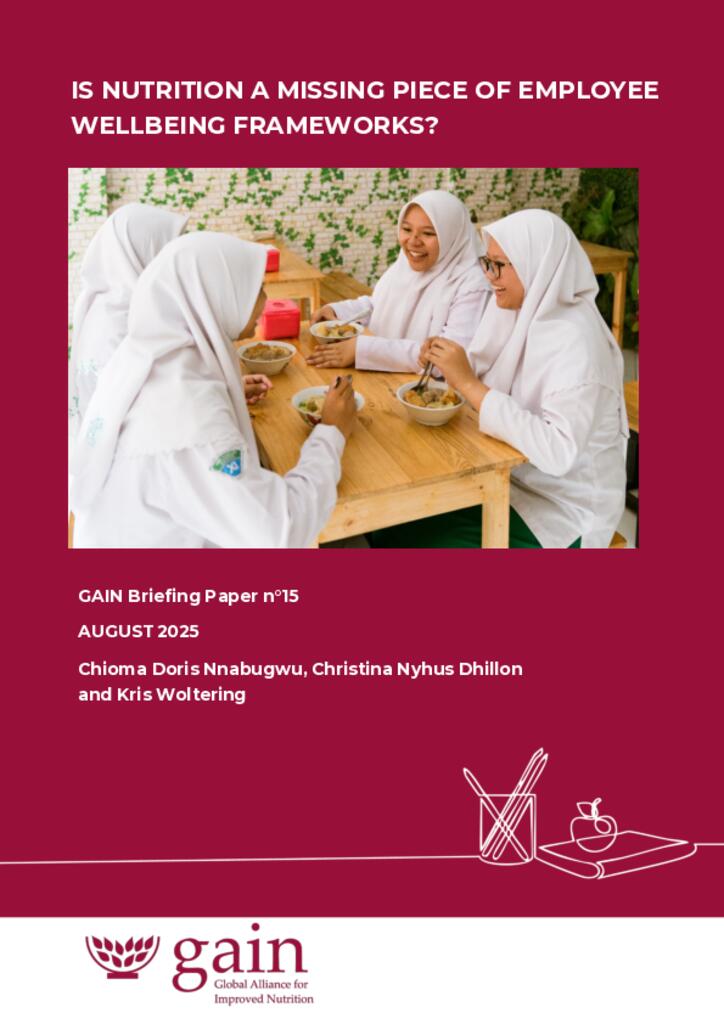The global burden of malnutrition, poor mental health, depression, and non-communicable diseases (NCDs) continues to grow, contributing significantly to mortality and poor health, reduced productivity, and economic stagnation. With over 60% of the population engaged in the workforce and spending more than half of their adult lives at work, the workplace offers a strategic platform to address these challenges. One important aspect of worker wellbeing is nutrition, which fuels the body, improves cognitive and immune function, and reduces sick days and NCD risk.
To understand how nutrition is integrated within employee wellbeing, GAIN reviewed 14 global wellbeing frameworks across policy institutions (2), governments (4), academia (3), private service providers (4) and non-profit organisations (1), as well as 23 company-specific frameworks in key sectors such as consumer goods (6), retail (5), finance (4), tech (2), energy (2), agriculture (2), and pharmaceuticals (2). All frameworks were found to include a mental health dimension, reflecting a dominant understanding of employee wellbeing through the lens of mental health. Although nutrition was integrated in 23 of 37 of analysed frameworks, it was only featured 15 times as a standalone dimension. In some cases, it was subsumed under entry points such as physical and mental health.
Despite this, there is a shared recognition across sectors of the role of food and nutrition play in employee wellbeing, and there is strong evidence of a relationship between nutrition and mental health outcomes. Poor dietary habits are not only a major contributor to the rise of NCDs, but also to declining employee mental health and reduced productivity. To address this, organisations should endeavour to include nutrition as a core component in their wellbeing frameworks and actively implement interventions that promote mental, nutritional, and physical wellbeing and health of employees. Also, for wellbeing frameworks to be truly effective, nutrition must be recognised not only as an essential dimension but also be backed by strong indicators. Prioritising nutrition within workplace wellbeing is a strategic investment in workforce productivity and economic resilience.
